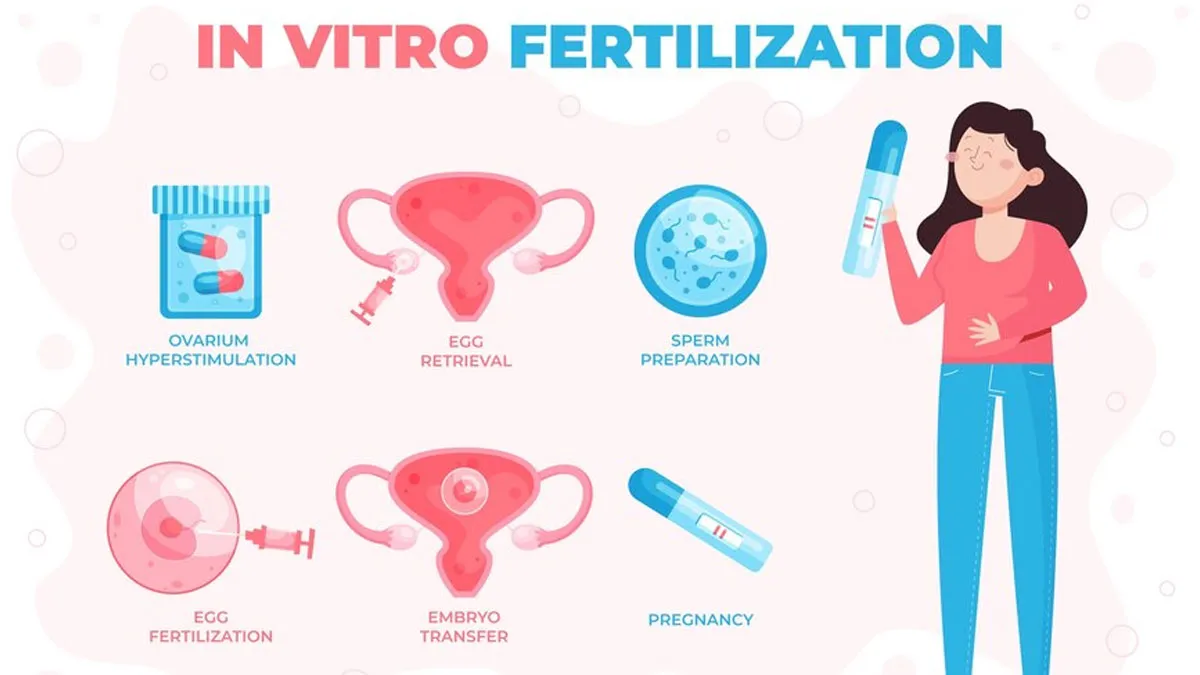
In 1978, Sir Robert Edwards, a scientist, and Dr Patrick Steptoe, a gynaecologist, joined hands to introduce one of the century’s most groundbreaking innovations: In Vitro Fertilization (IVF). Their revolutionary work not only brought hope to countless families but also transformed the future of reproductive health.
Table of Content:-
Over the years, many advancements have been made, with doctors and scientists working together to refine and enhance IVF technology. Along the way, it has become clear that many factors influence IVF success rates. While age remains a primary factor, lifestyle choices also play a significant role in affecting fertility and IVF outcomes. Therefore, adopting healthier habits is key alongside following the necessary IVF steps and procedures. Here’s what you can do to improve your chances.
Also Read: Do The Benefits Of IVF Outweigh The Risks? Experts Share Insights On The Side Effects
Regular Exercise Is Crucial

From reducing the risk of Cardiovascular Diseases (CVDs) to other chronic conditions, exercise benefits people in various ways. But did you know that regular physical activity also aids fertility and IVF success? This is basically to maintain a healthy weight, which is crucial for positive IVF outcomes. Speaking with the OnlyMyHealth team, Dr Archana Dhawan Bajaj, Gynaecologist, Obstetrician, and IVF Expert, Nurture IVF Clinic, New Delhi, says, “Incorporating regular exercise is one of the most essential lifestyle changes you can make. You should understand that having a low or high Body Mass Index (BMI) might have a major impact on your fertility rate, which is why, in order to have a safe pregnancy, you must take the required weight-control measures.”
“Yoga and walking are two of the finest workouts you can perform before beginning an IVF cycle and even when pregnant,” she added.
Ensure A Healthy Diet

A study of 612 women undergoing intrauterine insemination and IVF found that adherence to healthy diets like the American Heart Association (AHA) diet, Dietary Approaches to Stop Hypertension (DASH) diet, and Mediterranean diets significantly reduced pregnancy loss rates. Women with the highest adherence to the AHA diet had a 28% chance of pregnancy loss compared to 41% in the lowest group. While diet did not directly improve clinical pregnancy or live birth rates, following preconception healthy eating patterns lowered pregnancy loss risk and improved IVF outcomes.
These diets focus on eating foods, including fruits and vegetables, whole grains, and healthy sources of protein, and limiting saturated and trans fat.
Stress Management Is Key
According to Dr Bajaj, stress is a major contributor to reducing fertility rates. “If you are stressed out throughout your IVF treatment, your chances of success will reduce,” she says, adding that it is critical to manage stress during the IVF cycle using positive thinking and relaxation techniques, which include yoga, meditation, and therapy.
When it comes to managing stress, maintaining a good quality of sleep is also an essential part of it. “This is why doctors generally advise infertile couples to sleep for about 7-8 hours every night,” highlights Dr Bajaj.
She notes that sleep is one of the most important components in maintaining the metabolic process and rejuvenating all of the organs needed for a healthy pregnancy.
Avoid Unhealthy Habits Which Include...

There is no good when it comes to alcohol consumption and smoking; both can negatively affect fertility.
According to a research article published in the journal Human Reproduction, smoking significantly reduces the chances of pregnancy and live birth. The study included 221 couples undergoing IVF and gamete intra-Fallopian transfer (GIFT). Couples where either partner smoked had a 2.41 times higher risk of not achieving pregnancy and a 3.76 times higher risk of not having a live birth. Additionally, women with a history of smoking had a 2.71 times higher risk of not achieving pregnancy and a 2.51 times higher risk of not delivering a live birth.
With that in mind, it is crucial that avoiding unhealthy habits like smoking and drinking alcohol should be avoided. Dr Bajaj advises following the doctor’s advice on supplements like folic acid and vitamin D to enhance pregnancy chances and ensure foetal health.
Conclusion
Adopting a healthy lifestyle is important for improving IVF success rates. Regular exercise, a balanced diet, stress management, adequate sleep, and avoiding harmful habits like smoking and alcohol consumption can significantly improve fertility outcomes. Coupled with medical guidance and proper supplementation, these changes not only support a successful IVF journey but also ensure better overall health for both parents and baby.
Also watch this video
How we keep this article up to date:
We work with experts and keep a close eye on the latest in health and wellness. Whenever there is a new research or helpful information, we update our articles with accurate and useful advice.
Current Version